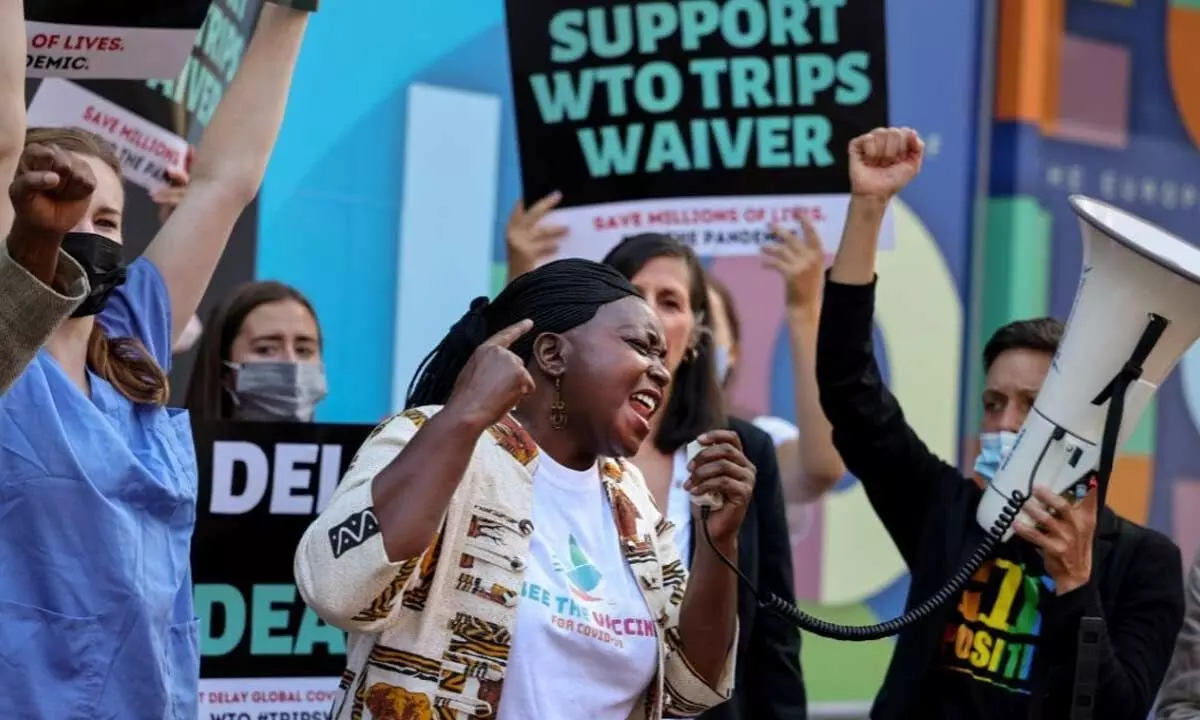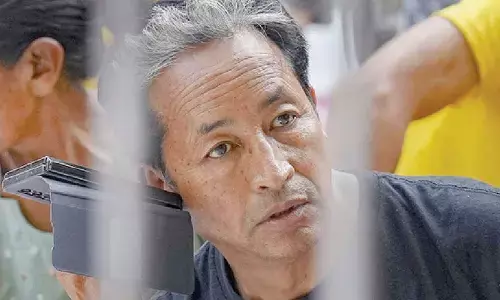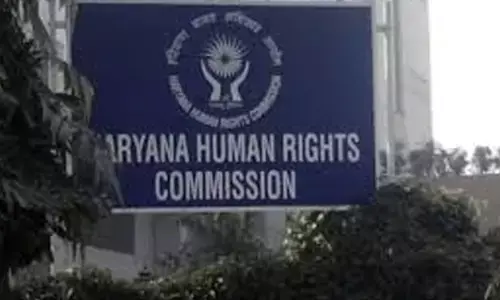Hurdles to patent waiver extension

Hurdles to patent waiver extension
The Covid pandemic has waned in most parts of the world but the fear remains that any new virus could cause similar havoc in the future
The Covid pandemic has waned in most parts of the world but the fear remains that any new virus could cause similar havoc in the future. The countries that have faced the greatest difficulty in getting access to vaccines as well as related diagnostics and therapeutics are emerging economies. It was for this reason that India, along with South Africa, had proposed allowing a blanket patent waiver to manufacture Covid-19 vaccines as early as 2020 at the World Trade Organisation (WTO). It took two years for the multilateral body to take a decision on the issue but it finally came through in June 2022, though, in a truncated form. It was decided to allow a temporary five-year waiver for such vaccines but not the related therapeutics and diagnostics.
With a WTO mini-ministerial being held shortly on the sidelines of the OECD meeting, India is expected to take up the issue of an omnibus waiver covering patents, diagnostics and therapeutics. It will be joined in its efforts, as in the past, by South Africa and other developing economies.
Developing countries at the WTO argued that merely providing a waiver to the TRIPS (Trade Related Intellectual Property Rights) Agreement for vaccines was simply not sufficient as it did not provide the tools to treat the virus. Non-government organisations like the People’s Vaccine Alliance at Oxfarm were deeply disappointed with last year’s outcome of extending the patent waiver only to vaccines. It issued a statement noting that this was not the broad intellectual property rights waiver needed to ensure access to vaccines and treatment to everyone around the globe.
Even this level of waiver went through at the 164-member WTO, largely because the US decided to give partial support. The global pharma industry expressed anger over the decision. It insisted that the industry had already built the capacity to vaccinate “everyone in the world,” as it has produced more than 13 billion shots The arguments made by the pharma industry against the patent waiver include the fact that such measures could stifle innovation and prevent companies from reaping the benefits from investments made in research and development.
Ultimately, it would not be correct for pharma companies to say that public funding should not lead to public good. Corporate profits in the global drug industry also rose steeply in 2020 and 2021, the period during which the Covid virus engulfed the world. Stock values of these companies had also risen significantly. So again it would be difficult for global pharma to argue that it had lost ground in any way by the patent waiver, which is, in any case, meant to be used only in times of an emergency such as a pandemic.
In this context, one must recall that it was India, which led the developing countries in ensuring that the clause allowing compulsory licensing in case of public health crises was incorporated in TRIPS. It was India’s aggressive advocacy that led to the WTO recognising the seriousness of public health problems in poor countries. It ultimately had to acknowledge that TRIPS should not hinder countries from taking measures to protect public health not only by issuing compulsory licences to local firms but also by allowing imports by countries with inadequate manufacturing capacities. The terminology was that imports could be used for dealing with HIV/AIDs, malaria, tuberculosis and “other epidemics”. It is the last phrase which has now become relevant with the Covid virus having caused a pandemic of the likes never seen before.
One can only hope that efforts made in the mini-ministerial by India, along with South Africa, leads to the adoption of an omnibus patent waiver for Covid as this will come as a much-needed boon to the developing world.










